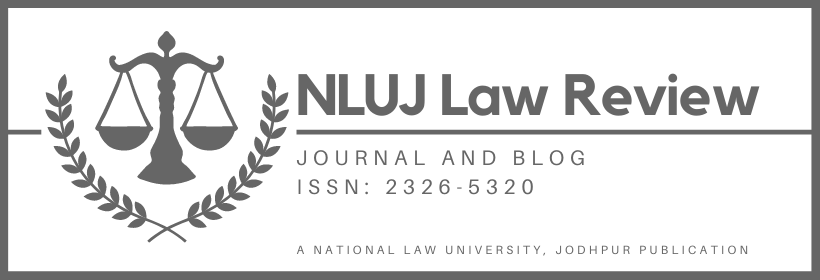“Democracy feeds on argument, on the discussion as to the right way forward. This is the reason why respecting the opinion of others belongs to democracy.”
– Richard von Weizsäcker
With 3,000 castes, 122 majorly spoken languages, 28 states, 8 Union Territories, 6 majorly professed religions and with other innumerable ethnic and cultural diversities, India is one of the most diverse countries across the globe. The heterogeneity embedded in the fabric of India is recognised and honoured through Article 14 of the Constitution of India, 1950. Article 14 prohibits discrimination by state and guarantees equality for all.
One important aspect of equality is drafting laws which ensure representation of interests of all groups, chiefly, minority groups such as the Schedule Tribes, LGBTQIA+, persons with disability and religious minorities. Throughout history, when it comes to drafting legislation, minority groups’ interests have either not been taken into account or insufficient consideration has been given to their interests while drafting laws for them. For example, The Transgender Persons (Protection of Rights) Bill, 2019, Citizenship (Amendment) Bill, 2019 and now the very recent The Farmers Produce Trade and Commerce (Promotion and Facilitation) Bill, 2020; all three of which are now Acts, have been highly controversial and attracted widespread criticism from stakeholders and social rights activists alike for misrepresentation and neglect of minorities’ interests.
But how does the legislature ensure representation and accommodation of diverse views when drafting laws for various groups? The answer lies in the process of pre-legislative consultation and deliberation.
Pre-legislative consultation
Pre-legislative consultation refers to the process of engaging in a constructive discourse over a policy with stakeholders, experts and civil society before chalking out the intended policy into a bill or law. The process, of pre-legislative consultation, provides the legislature with much-needed knowledge concerning the interests, problems and the kind of reforms that the specific group, for whom the policy is being ideated, is seeking. Pre-legislative consultation provides a reality check and a ground view of the issue at hand. Further, seeking opinions and suggestions from the group for whom, the policy is being ideated upon, allows for greater transparency.
In a country like India, where most people think of law as something which is difficult to unravel, pre-legislative consultation paves the way for increased legal literacy. It increases citizens’ understanding of the law. It familiarizes them with the process of law-making and makes them aware of their rights.
Further, by involving stakeholders, experts and members of civil society, pre-legislative consultation helps in avoiding ‘groupthink’. Groupthink is a psychological phenomenon in which members of in-group (i.e., legislature) strive to achieve consensus and avoid deviating from the group. Groupthink is manifested through stereotyping, rationalising, desire for conformity and keeping aside one’s personal beliefs. Pre-legislative consultation brings members from different groups (i.e., civil society, stakeholders, experts) together where each group can act as devil’s advocate for other groups’ recommendations, thereby reducing the chances for groupthink.
The process of pre-legislative consultation also helps in avoiding ‘group polarisation’. Group polarisation is another social psychological phenomenon in which a group (i.e., legislature) tends to take an extreme stand when acting as a group. This may seem surprising because group decision making is often assumed to be rooted in arriving at a consensus and a middle ground. Group polarisation can happen while drafting laws as ideologically similar people (politicians of the ruling party) when deciding on certain laws as a group, may feel that their beliefs are widely validated (even when they are not) because people from their party may share similar beliefs. Such validation gives an exaggerated sense of acceptance which motivates the group to take an extreme decision on certain policy issues. Pre-legislative consultation by involving groups which are not ideologically similar (i.e., experts, social rights activists and policymakers) helps in avoiding group polarisation and allows for a more rationalised and negotiation-based drafting of laws where diverse views and interests are accommodated.
The Right to Information (“RTI”) Act, 2005 is a testament of how a fruitful pre-legislation process can solidify democratic discourse. The Freedom of Information Bill introduced in 2002 after extensive consultation, feedback and accommodation of interests of diverse groups became The RTI Act in 2005. The passing of the RTI Act is a shining example of how democracy, when in action, can bring the right way forward. Another successful example presenting a robust model of pre-legislative consultation is the Kerala Police Act, 2011. In 2011 the state government introduced the bill on the police website and sought public feedback. Extensive consultation and recommendations by various groups led to the outcome of the standing committee recommending 790 amendments in the proposed bill. The bill was then debated for 4 hours with acceptance of 240 amendments, many of which were based on public feedback. The legislation included many police friendly provisions which are special only to the Kerala Police Act.
Deliberation
It is necessary to distinguish between pre-legislative consultation and deliberation. In India, pre-legislative consultation is only limited till seeking recommendations and suggestions from the stakeholders before drafting a bill or coming out with a law; it does not mandate the government to deliberate about the received feedback. This means that the legislature has full discretion to negate all the suggestions it sought during the pre-legislative feedback without facing any consequences. Deliberation, on the other hand, makes it essential for the legislature to ponder upon the recommendations received during the pre-legislative consultation phase. Deliberation is rooted in the notion of ‘public reasons’ embedded in Rawlsian Tradition. This means that reasons for arriving upon a conclusion or making a certain decision should be justified to the people. In law-making, deliberation allows holding the government accountable. The process of deliberation seeks answers from the government concerning policy decisions. It paves the way to ask the legislature to explain why some or all suggestions or recommendations, sought during the consultation stage were not considered while drafting a particular bill or law. All of this increases the legislature’s accountability and transparency. A legislature which provides answers and is accountable leads to increased trust of citizens in the law-making process. The process of deliberation allows for decreased corruption as justification for decisions on rational grounds and accountability blocks the fulfilment of vested interests of some influential individuals. It does not allow the legislature to reject the suggestions sought during the consultation stage on frivolous grounds. Both pre-legislative consultation and deliberation go hand-in-hand and are equally important when it comes to law-making. Although India has a Pre-Legislative Consultation Policy, 2014 (“PLCP”), it is shaky and implemented in a non-uniform manner. The PLCP does not hold the legislature accountable when it negates the suggestions provided by diverse groups. It mentions a period of 30 days for which the consultation has to be sought mandatorily by the government, but it is rarely followed. 89 % of the bills introduced in the parliament from a period of June 2014 to May 2019 either had no or incomplete consultation. Such a violation requires measures that makes it mandatory for the government to engage in pre-legislative consultation and deliberation. India can look up to South Africa, which presents a powerful example of pre-legislative consultation and deliberation. In South Africa, pre-legislative consultation and deliberation are constitutionally mandatory for the legislature before introducing bills in the parliament. In Doctors for Life International v. Speaker of the National Assembly and Ors. the judiciary in South Africa struck down a law because the legislature failed in fulfilling its obligation of ensuring public participation while drafting the particular law.
Addressing the criticisms
Critics argue that mandatory pre-legislative consultation and deliberation will be economically expensive and would lead to unnecessary depletion of the government treasury. But in the current times of social media mobilisation and awareness when the government tries to negate the suggestions and interests of diverse groups, it results in chaos, protests and deterioration of mental health of individuals constituting groups for whom the legislation is drafted for. For example, when the legislature bypassed most of the suggestions recommended for The Transgender Persons (Protection of Rights) Bill, (2019) and passed it in the parliament, it led to an eruption of protests by the transgender community and civil rights organisations. All the protests were quelled with the usage of physical force by the authorities. This further marginalised the community and created a sense of distrust in the legislative functioning. Such costs are more significant than economic costs as they lead to political instability, an atmosphere of mistrust, and a constant tussle between the legislature and the civil society. Further, making amendments once the law has come into being, many times leads to confusion among the public and further acts as a deterrent for them to be legally literate. Citizens think law keeps changing and is confusing; therefore, they need not engage with it unless they are themselves involved in a legal suit.
Another major criticism is that the process of consultation and deliberation is time-consuming. This criticism is rebuttable on the ground that although the process is time-consuming, it leads to efficient and wholistic drafting of laws. Involving diverse groups, stakeholders and experts gives numerous insights concerning the issue being legislated upon.. Such efficient and wholistic drafting of laws is much needed in a country like India where laws are often poorly drafted and lead to unnecessary bewilderment.
In the end, it is safe to conclude that for a highly diverse country like India where the Constitution guarantees equality for all, it becomes imperative for the legislature to ensure appropriate representation and accommodation of interests of diverse groups while drafting laws. Such an endeavour can only be achieved when India will strengthen its pre-legislative and deliberation policy. Doing so will not only ensure more political stability but will also lead to increased legitimacy and trust in government functioning which is on a decline in current times. The main question which now remains is not whether pre-consultative legislation and deliberation are essential to democracy or not, but rather does the legislature want it or not.
This article has been authored by Himani Yadav, student at Jindal Global Law School.



